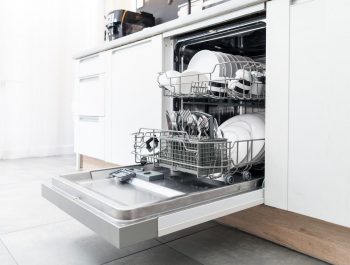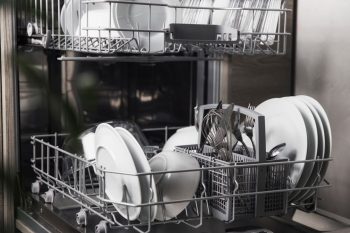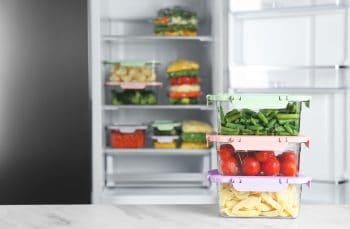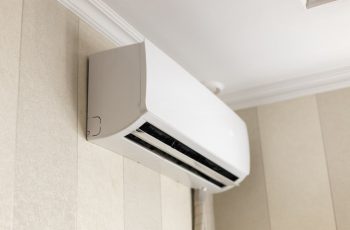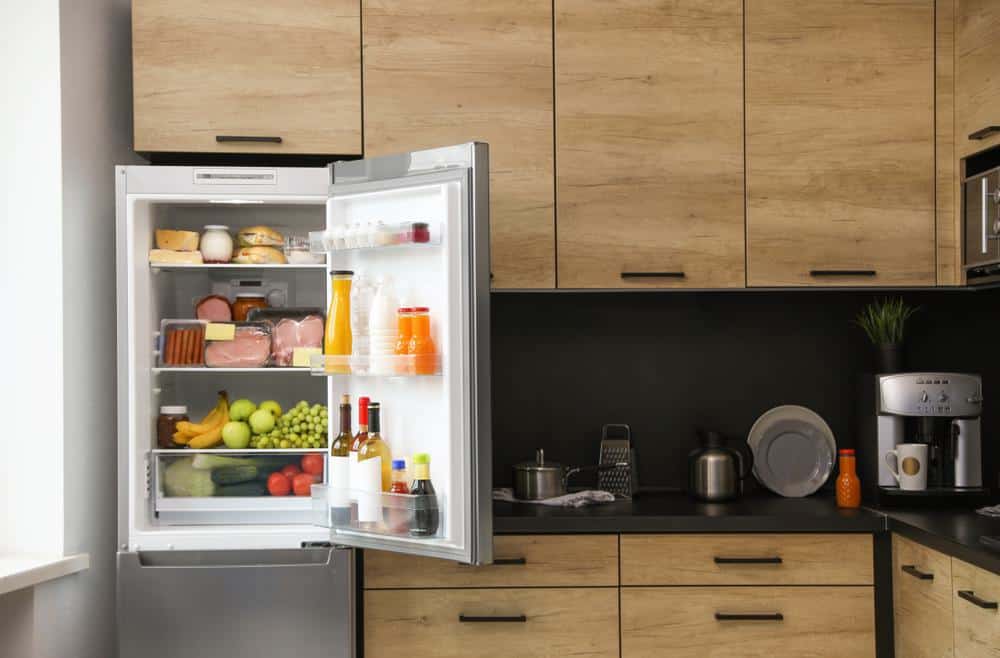
Metal cooling in a refrigerator is a technology that uses stainless steel paneling to help maintain consistent temperature throughout the refrigerator. This technology locks in cold air and seals in freshness, ensuring that the temperature remains stable and food stays fresh for a longer period. Companies like Samsung have incorporated metal cooling in their refrigerator models to enhance temperature consistency and improve food preservation.
Metal cooling in a refrigerator is a technology that uses stainless steel paneling to maintain a consistent temperature throughout the refrigerator. It works by locking in cold air and sealing in freshness, which results in stable temperature and longer food preservation. This technology is found in some refrigerator models from manufacturers like Samsung and LG.
How Does Metal Cooling Technology Work in Refrigeration?
Metal cooling technology in refrigeration works by using materials that cool in response to an applied force, such as electric, magnetic, or mechanical force. These environmentally friendly alternatives are known as “caloric cooling” systems. One example of metal cooling technology is the use of shape memory materials, also known as “metal muscles” or “artificial muscles,” made from a nickel-titanium alloy. Another example is the elastocaloric cooling system, which relies on the properties of certain shape-memory metal alloys, such as nitinol, that absorb and release heat when they change shape.
In these systems, the metal materials undergo a change in response to an applied force, which causes them to either absorb or release heat. This heat transfer can be used to cool the surrounding environment or maintain a specific temperature. For instance, Samsung’s metal cooling technology uses stainless steel plates inside the refrigerator to allow for even cooling and precise temperature maintenance.
Advantages of Metal Cooling in Refrigerators
Metal cooling in refrigerators offers several advantages:
- Faster cooling: Metal, particularly stainless steel, has higher thermal conductivity than plastic or ceramic materials commonly used in refrigerators. This allows the cold to be absorbed more quickly, resulting in faster cooling of the items inside.
- Even cooling and precise temperature maintenance: Metal cooling plates inside the refrigerator help maintain a consistent temperature throughout the appliance, ensuring that all items are cooled evenly.
- Enhanced temperature preservation: Metal cooling technology, such as metal plates installed along the back of the refrigerator, helps retain cold air and maintain maximum food freshness.
- Reduced odor mixing: In dual cooling refrigerators, which have separate evaporators for the refrigerator and freezer compartments, metal cooling can help prevent smells and tastes from crossing over between the two sections.
Disadvantages or Drawbacks of Metal Cooling in Refrigerators
Despite the numerous advantages, there are a few potential drawbacks of metal cooling in refrigerators. One possible issue is the cost associated with implementing metal cooling technology, as it may be more expensive than traditional cooling methods. Additionally, while metal cooling can provide even cooling and precise temperature maintenance due to the higher thermal conductivity of stainless steel compared to plastic or ceramic, it may not be a significant improvement over other cooling methods for some users.
Metal Cooling Technology vs. Other Cooling Technologies
Compared to other cooling technologies, metal cooling offers several advantages in terms of temperature uniformity and stability. However, alternative technologies like thermoelectric and magnetic cooling may provide more environmentally friendly and energy-efficient solutions in the future.
Manufacturers Offering Refrigerators with Metal Cooling Technology
Manufacturers that currently offer refrigerators with metal cooling technology include:
- Samsung: They offer a 29 cu. ft. Side-by-Side Food ShowCase Refrigerator with Metal Cooling. The stainless steel paneling helps maintain a consistent temperature throughout the refrigerator.
- LG: Although not explicitly mentioned, LG refrigerators have a similar technology to Samsung’s metal cooling, called door cooling.
Other manufacturers like Nova Kool and Turbo Air produce refrigerators with efficient cooling systems, but they do not specifically mention metal cooling technology.
Cost Comparison: Metal Cooling Refrigerators vs. Regular Refrigerators
The cost of a refrigerator with metal cooling can vary depending on the brand, size, and additional features. However, it is important to note that metal cooling is just one of the many features that can affect the price of a refrigerator. Other factors, such as size, door design, and additional features, can also impact the cost.
In conclusion, metal cooling technology in refrigerators can lead to improved temperature control, faster cooling, and better food preservation. This technology can help reduce energy consumption and lower utility bills while keeping food fresher for longer periods.
Frequently Asked Questions
What is caloric cooling?
Caloric cooling refers to cooling systems that use materials which cool in response to an applied force, such as electric, magnetic, or mechanical force. This environmentally friendly alternative to traditional cooling methods is used in metal cooling technology in refrigeration.
What are shape memory materials?
Shape memory materials, also known as “metal muscles” or “artificial muscles,” are made from alloys like nickel-titanium. They can change their shape in response to an applied force and can absorb or release heat during this process. They are used in metal cooling technology in refrigeration.
What are some examples of refrigerators that use metal cooling technology?
Samsung and LG are two companies that offer refrigerators with metal cooling technology. Samsung’s 29 cu. ft. Side-by-Side Food ShowCase Refrigerator with Metal Cooling and LG’s refrigerators with door cooling technology are examples of this.
How does metal cooling technology contribute to energy efficiency?
Metal cooling technology in refrigeration helps maintain a consistent temperature throughout the appliance, which can lead to reduced energy consumption.
What factors can affect the cost of a refrigerator with metal cooling technology?
The cost of a refrigerator with metal cooling technology can be influenced by a variety of factors, including the brand, size, door design, and additional features.



